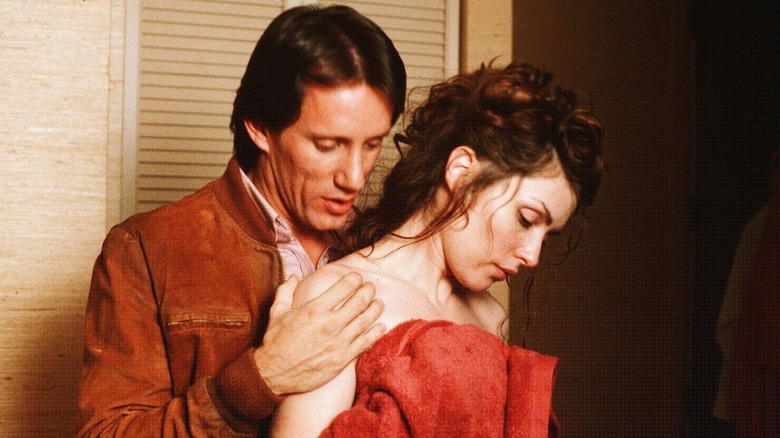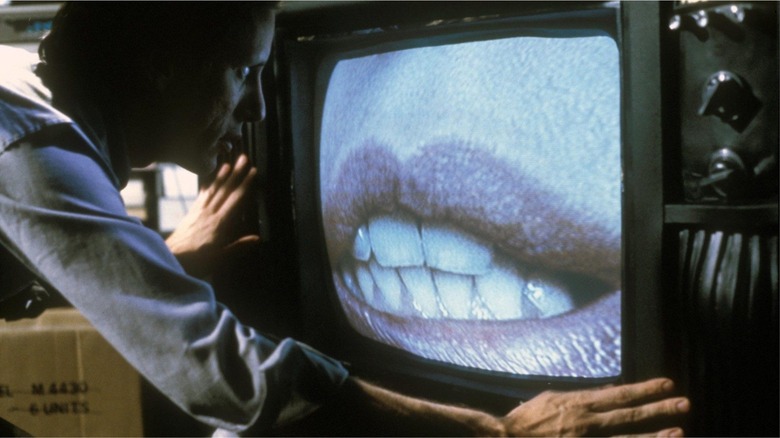Cronenberg Knows His Films Are Polarizing And He Doesn't Care
David Cronenberg is the king of visceral horror, but he isn't a fan of shock value. His huge body of highly acclaimed films are characteristically unsettling and beloved by an ever-growing cult audience of horror nerds and movie buffs, but he definitely isn't for all tastes. The filmmaker has always been well-aware of the alienating nature of his work, but he isn't interested in appealing to everyone. From "Videodrome" to "Crimes of the Future," Cronenberg upholds his own demented creative vision, making him one of the most stylistically identifiable directors of all time.
"Videodrome" is a 1983 surreal science fiction film about a seedy television producer, Max Renn (James Woods), in desperate need of more viewership. In search of programming that will shock an audience into watching his channel, he finds Videodrome, the unfiltered broadcast of extreme torture. When his girlfriend (Deborah Harry) auditions for the show, she mysteriously disappears, incentivizing Max to investigate the nefarious goings-on at Videodrome productions. The result is one of Cronenberg's more notable ventures into his canon of body horror.
Cronenberg undoubtedly uses graphic imagery in this film, but he uses it intentionally to illustrate poignant themes. One of the most memorable components of "Videodrome" is Max Renn interacting with his television, a dynamic that incidentally predicted many aspects of our modern relationship to technology. The director admits that the film was at least mildly prophetic in an interview with the Flashback Files. "Not that I invented the internet," he muses, "but I did invent interactive television, which in a way is a metaphor for the internet."
He's committed to maintaining his vision
The "Videodrome" director knows that "film audiences are fragmented," that his work is polarizing by nature, "and that there are people who will just not understand or not care to know" what goes on in his films, he explained in a "Videodrome" featurette (via Revok). That's all the same to Cronenberg. To him, "that's inevitable, that's no surprise at all." This philosophy is what allows him to approach his work with a true commitment to his artistic pursuit.
The acclaimed filmmaker is unafraid of making films that shock his audience, because he makes a world that allows for shock, and even anticipates it. He doesn't employ this imagery for the sole purpose of soliciting a "cheap" reaction from his audience, though. In fact, he abhors that practice. He gives an example of an animal that is slaughtered for real in the middle of a traditional narrative fiction film, explaining that he "find[s] that very offensive because it's a whole different level of reality interjected into the middle of a fiction." He doesn't think there should be any limitations or restrictions as to what can be shown on film, but he is an advocate for ontological continuity.
Cronenberg continues to push boundaries in his filmmaking today. He crafts a diegetic and fictional world that is surreal and unnerving, injecting it with the terrifying monsters and mind-bending moments that he has become known for. If you can stomach the discomfort of his films, you will find them more than worth it. They are not only pertinent, but often prophetic. Those who "will just not understand or not care" for Cronenberg do themselves a massive disservice, denying themselves some of the most revolutionary works in the history of cinema.

